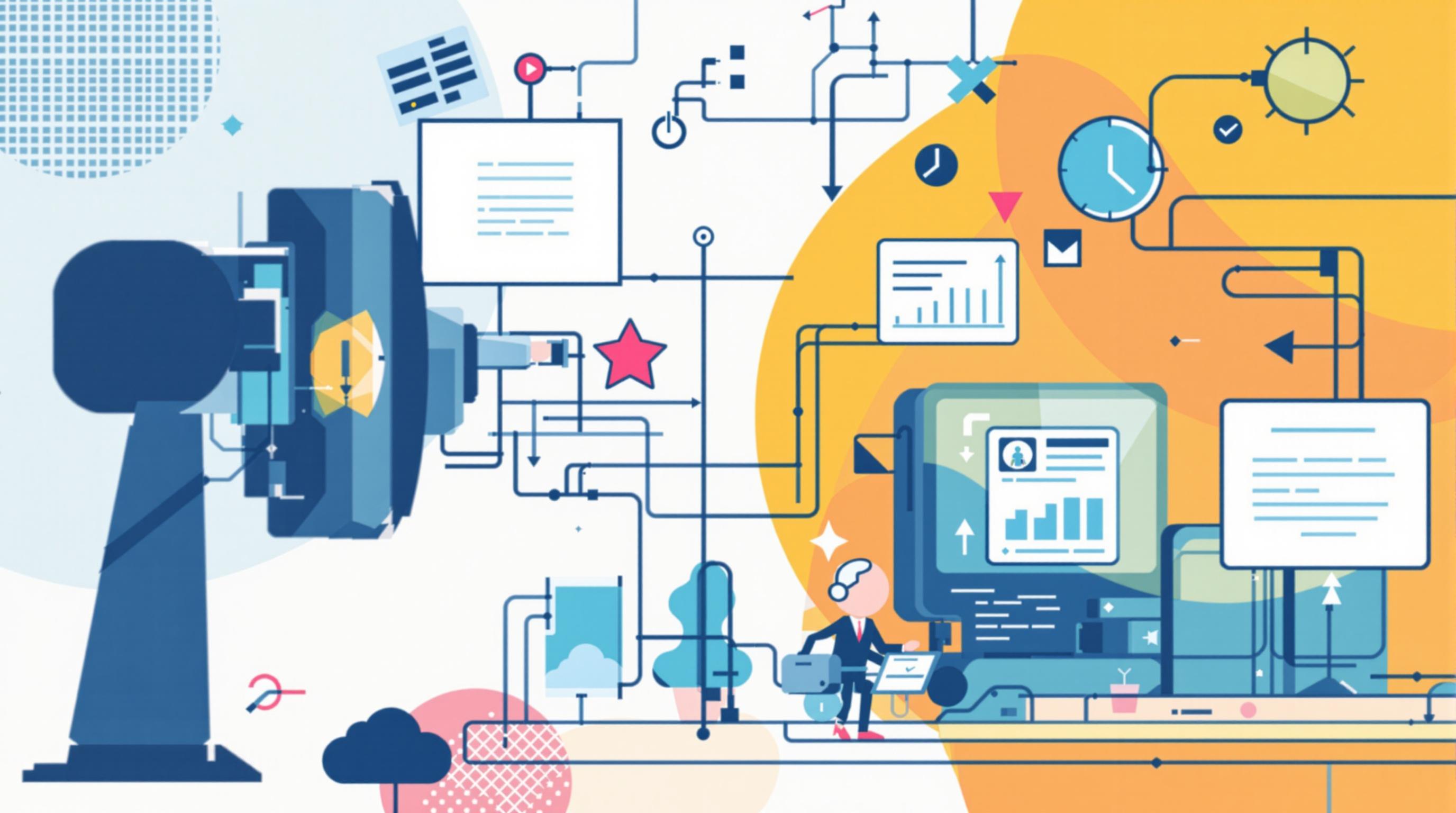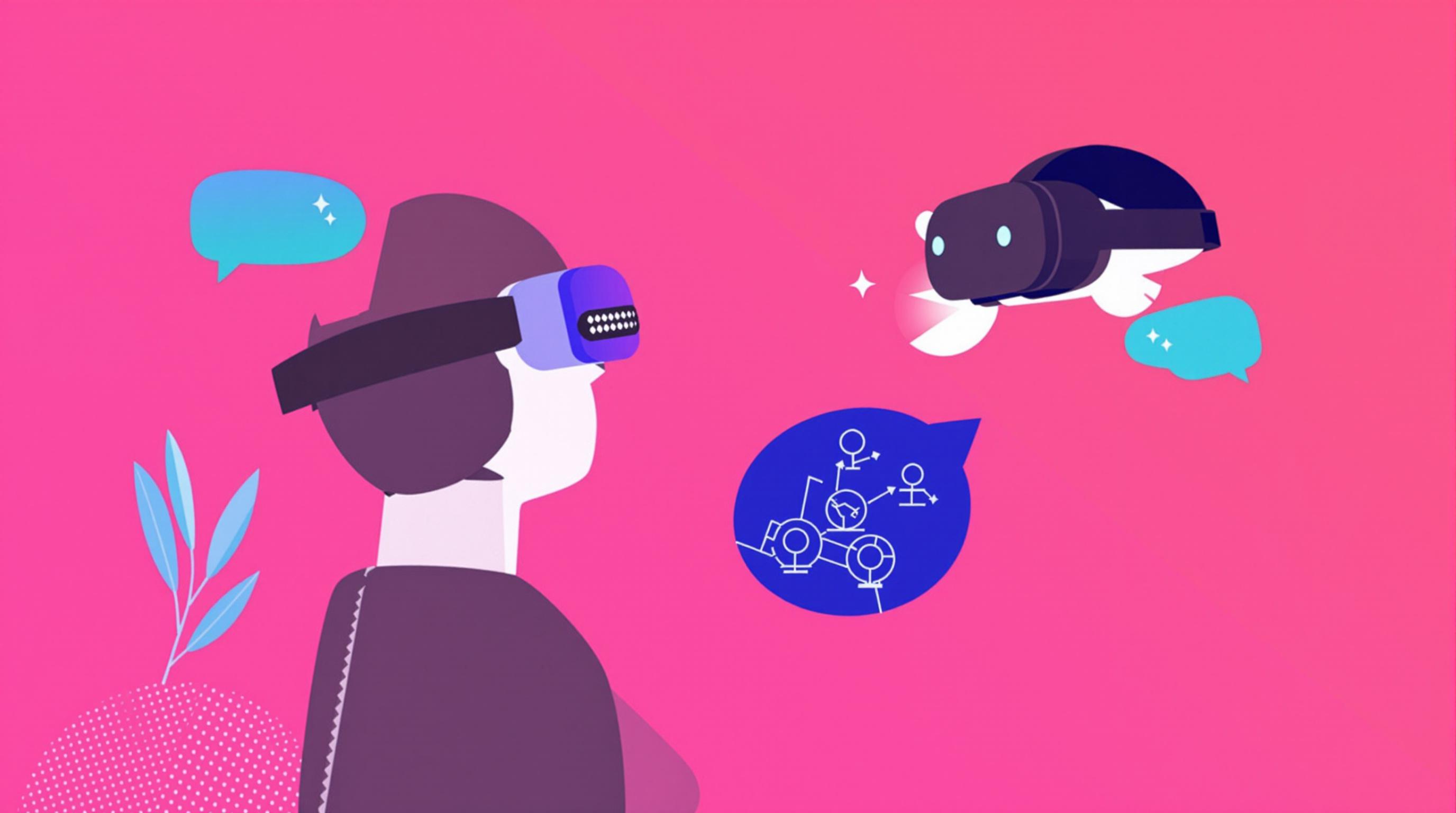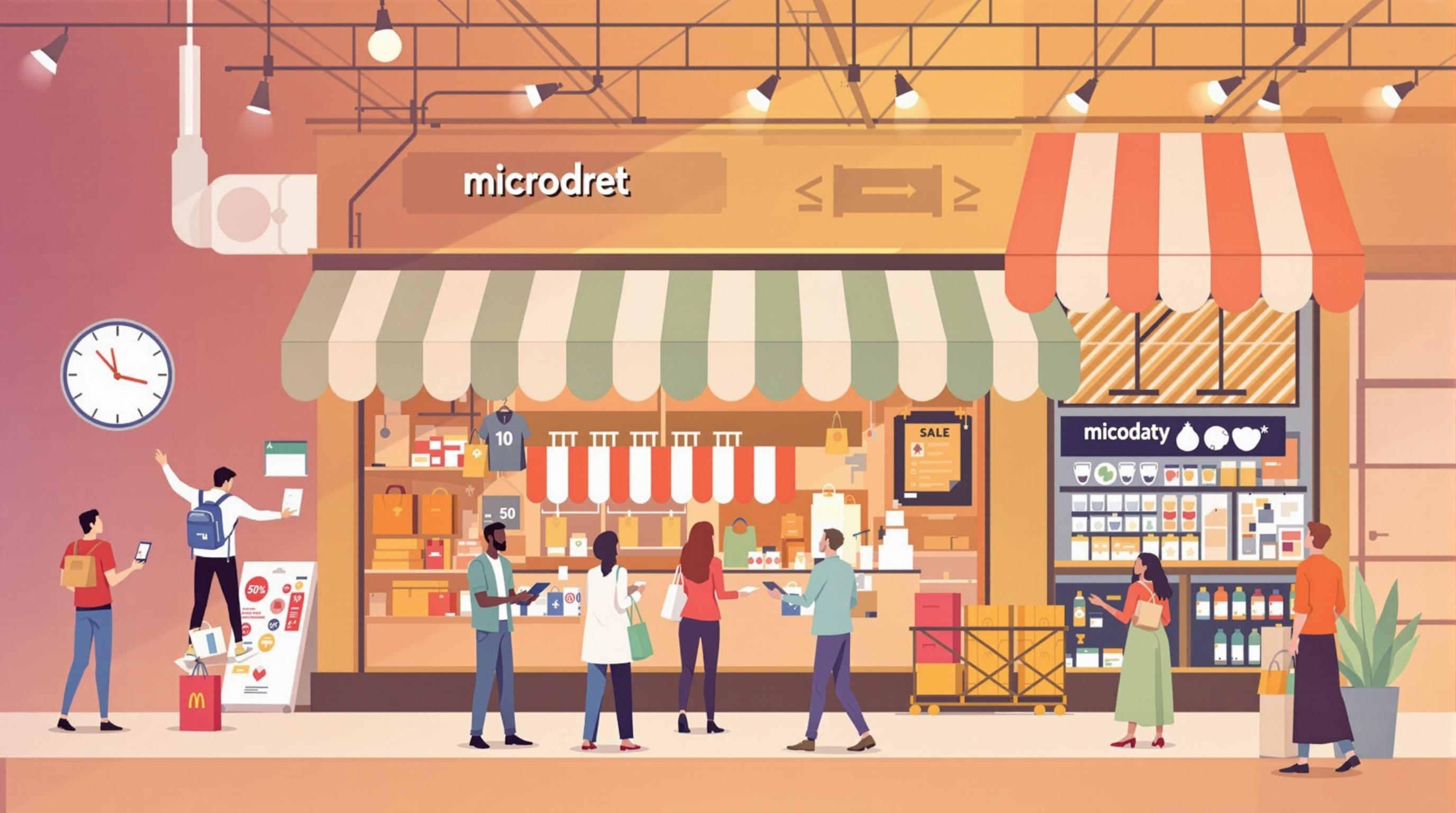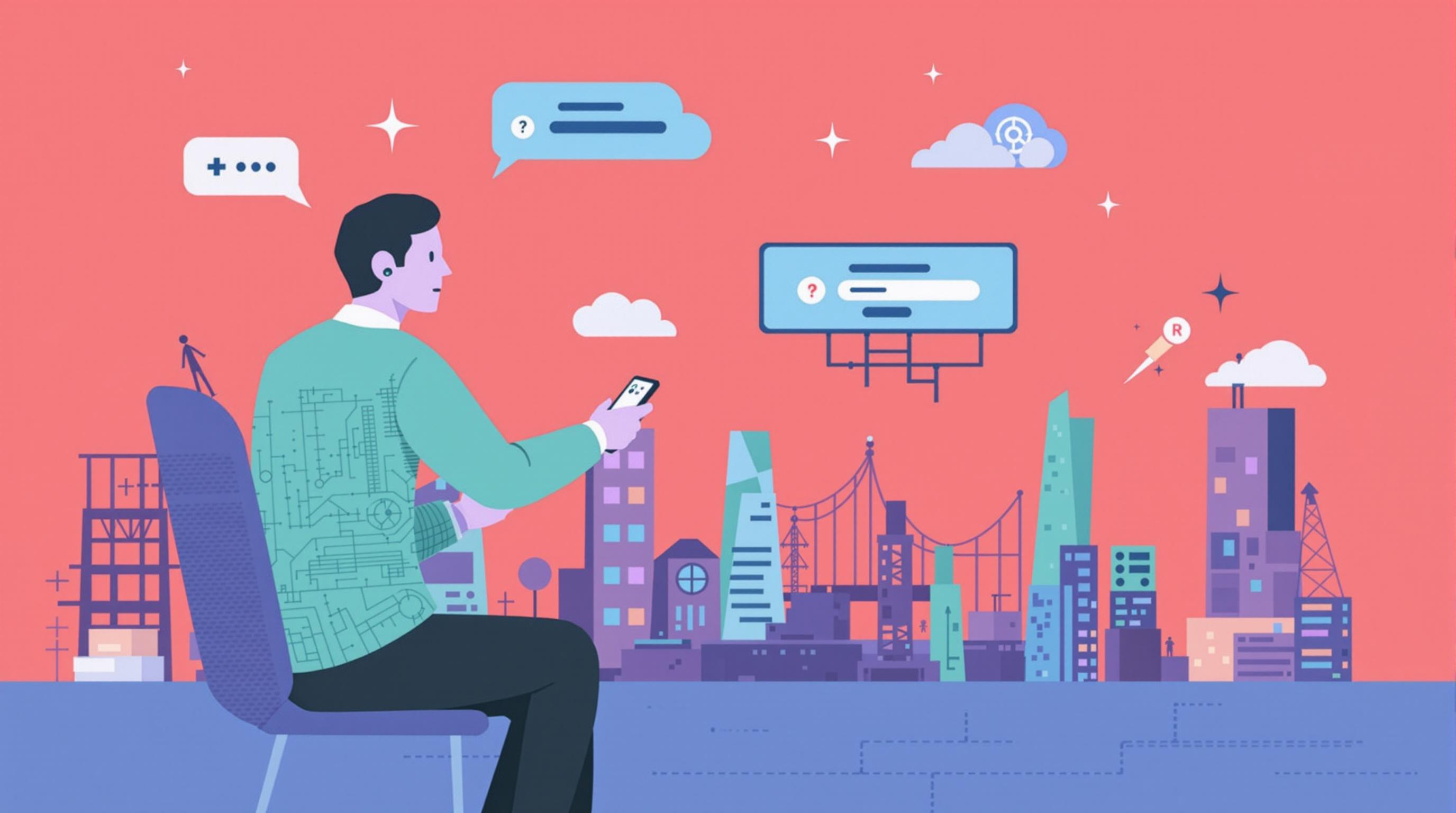Related Articles
- Navigating the Talent Labyrinth: How Emotional Intelligence Is Shaping New Hiring Practices in Unseen Markets
- Behind the Scenes: How Automating HR Processes Is Redefining the Future of Recruitment and Job-Seeking Strategies
- Beneath the Surface: Unveiling the Surprising Role of Environmental Sustainability in Shaping Future Careers
- Exploring the Quirky Side of Remote Work: How Hobbies Are Fueling Professional Success in Unexpected Ways
- How the Remote Revolution is Inspiring Unlikely Friendships Across Continents: A Study of Global Connectedness
- The Unforeseen Bond: How Virtual Coworking Spaces Foster Unexpected Connections Amidst Remote Work
Behind the Scenes: How Automating HR Processes Is Redefining the Future of Recruitment and Job-Seeking Strategies
Behind the Scenes: How Automating HR Processes Is Redefining the Future of Recruitment and Job-Seeking Strategies
The automation of HR processes is transforming recruitment and job-seeking strategies by improving efficiency and enhancing candidate experiences. This article delves into the mechanics behind these changes and their profound implications for both job seekers and employers.
The Dawn of Automating HR Processes
Once upon a time, in the not-so-distant past, recruitment was largely a manual process filled with paperwork, emotional gut checks, and sometimes, let's face it, chaotic hiring decisions. Fast forward to today, where a blend of artificial intelligence (AI) and automation is sweeping through the HR landscape like a breath of fresh air, promising efficiency, consistency, and compliance.
Why Automate? The Case for Modern Recruitment
As someone who entered the workforce at a young age, I’ve witnessed a dramatic transformation in recruitment practices. What was once about paper résumés and endless interviews is now powered by algorithms and machine learning. According to a 2022 report from the Talent Board, companies that automate their hiring processes saw an average of 32% reduction in time-to-hire compared to those relying on traditional methods.
Statistics Speak Volumes
Consider this: predictive analytics can identify the best candidates long before they even step through your door. A survey by LinkedIn revealed that 62% of recruiters believe that AI will have a significant impact on hiring in the next five years. This emphasizes how crucial it is to get ahead of the curve as both job seekers and recruiters.
The Candidate Experience: A New Era
Ever applied for a job and heard crickets? (Fingers crossed that wasn't at your dream company.) Automated HR tools are designed to improve the candidate experience significantly. Candidates can now receive real-time notifications about their application status, access digital interview platforms, and even participate in AI-driven skills assessments. These improvements signal a shift towards a more engaging and transparent hiring process.
Success Stories from the Field
Take the case of Unilever, for instance. The multinational company adopted an AI-based recruitment process that involved a game-based assessment to evaluate candidates' problem-solving skills. What was the outcome? Their time-to-hire decreased by 75% and the company reported a more diverse pool of applicants compared to their previous methods. This serves as a testament to how innovative solutions can produce tangible results.
Au Revoir, Bias! A Fairer Hiring Process
Here’s a fun fact: automated recruitment processes are often heralded as the knights in shining armor against unconscious bias. Algorithms can assess candidates based purely on their skills and experience, circumventing the human tendency to judge based on personal biases. As organizations aim to foster equitable workplaces, this technological shift is advantageous.
The Appeal of Data-Driven Recruitment
The power of data is no longer just a trend; it’s a way of life. Recruiters are now utilizing big data analytics to analyze trends, candidate behaviors, and performance metrics. A survey conducted by IBM in 2023 found that companies that applied data-driven strategies in their hiring processes experienced a 15% increase in employee retention rates.
Job Seekers in the Age of Automation
Hello, aspiring professionals! If you're reading this while contemplating your career path, here's a nugget of wisdom: today’s job market requires a different type of strategy. As recruitment techniques evolve, so must your approach to job-seeking. Think of yourself as a smartphone app; you need to be updated and innovative to remain relevant!
Boost Your Resume with Tech Tools
Websites that offer AI résumé builders, like Zety and Resume.io, can help streamline your application process. They offer tips based on industry standards, helping you tailor your résumé quickly. Just as organizations leverage automation for efficiency, you too can use technology to ensure you stand out.
Keeping It Casual: Automating Networking
Networking doesn’t have to be all about mingling at stuffy parties anymore. Enter the world of automated networking tools like LinkedIn's AI-driven job recommendations. These platforms help you connect with potential employers and peers, eliminating the awkwardness of traditional networking. Your best suit and 'I love to chat about coffee' spiel might not be required after all!
The Impact of Virtual Hiring Events
Surprise! Virtual hiring events are changing the game! During the pandemic, companies had to pivot to online recruitment methods. A survey by Jobvite found that 49% of job seekers had attended a virtual event, with participants expressing a preference for the convenience of these online meetings over in-person fairs. It’s a brave new world, and boy, did it get a lot easier!
Crisis Management: The Agile Workforce
Let’s face it; we’ve all seen a need for crisis management in hiring processes, especially during uncertain times. Automated HR solutions allow organizations to pivot quickly as job markets fluctuate. For example, during the COVID-19 pandemic, many businesses turned to automation to fill essential roles without compromising safety.
The Employer's Perspective: Efficiency and Cost-Effectiveness
For employers, the stakes are just as high. It’s like trying to find the right pair of shoes in a store full of similar ones—time-consuming and often frustrating! Automation streamlines the hiring process, reducing overhead costs and minimizing human error.
Cost Reduction through HR Tech
Research by PwC indicates that companies using automated recruiting software save nearly $500,000 annually due to reduced staff hours and decreased turnover costs. That’s a lot of dough! And with these advancements, HR professionals can devote more time to high-impact activities, such as employee engagement initiatives and talent development.
Future-Proofing Recruitment Strategies
As technology continues to evolve, it's vital for both job seekers and employers to adapt their strategies to remain competitive. Staying informed about industry trends, technologies, and best practices will be key. For instance, have you heard about blockchain resume verification? It's emerging as one of the most credible ways to authenticate job qualifications. If you're planning to hire or looking to land that dream job, embracing these futuristic tools will set you apart.
Make Automated HR Work for You
Here’s a light-hearted thought: if your résumé could take a vacation, it would probably choose the automated route! Embrace technology as a co-pilot in your journey, whether you’re applying or hiring. Just like training wheels for a bike, it could provide that little bit of support to reach your ultimate goal without making it overwhelming.
The Balancing Act with Automated Solutions
I don’t want to paint a utopian picture; with great power comes great responsibility. Too much reliance on automation can lead to a lack of personal touch. Employers still need to ensure that human interaction remains a part of the recruitment process to foster genuine connections and avoid the mechanical feel often associated with automated responses.
Conclusion: The Road Ahead
As a 25-year-old enthusiast who has navigated various job-hunting experiences, I can tell you: being aware of how automation is redefining recruitment gives you a strategic advantage. The future holds promising advancements that will continue to shape how we connect, engage, and hire. Whether you’re a job seeker or an employer, embracing these innovative changes will pave the way for all involved. Let's celebrate this new age, armed with both technology and human insight!





